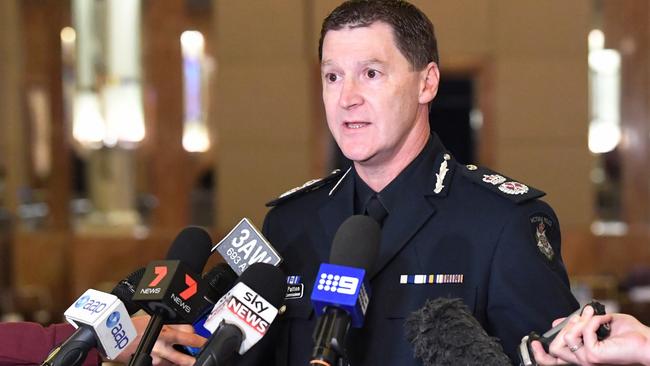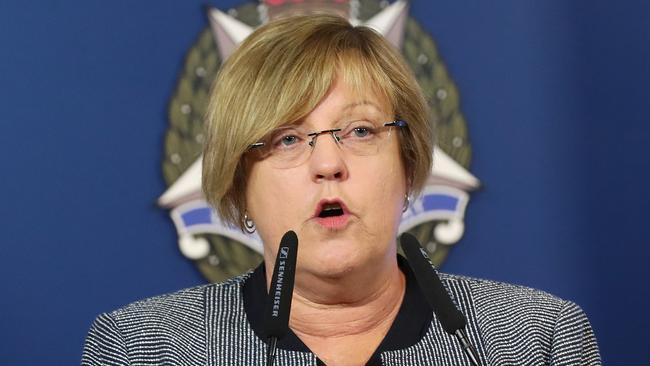Youth crims the target of gun bans
YOUTH gangs will be the target of tough new gun laws, which would allow police to search young thugs and their homes without a warrant.
VIC News
Don't miss out on the headlines from VIC News. Followed categories will be added to My News.
- Extra police search power under new laws
- Gun laws in limbo as politicians bicker
- Gun robberies in Melbourne target in demand handguns
- Bandits steal handguns from Thornbury store
- Why won’t America change its gun laws?
YOUTH gangs will be the target of tough new gun laws, which would allow police to search young thugs and their homes without a warrant.
Up to 3000 members of organised crime families, bikies, potential extremists and hardened criminals are on a police shortlist to be slapped with the new Firearm Prohibition Order.
The Herald Sun understands dozens of violent underage criminals are also considered candidates for the powerful new orders — which bans them from owning or carrying a gun.
Government and police believe the new laws will be a key gang-busting tool against youth criminal groups — like Apex and Menace to Society — as those on the orders can be subjected to almost daily searches.
Senior police have confirmed teenage armed robbers — like the underage Apex gang members that launched a spree of raids on jewellery stores in the past year — will be among the first slapped with a gun ban.
Many of the 300 extremists on the terror watch list, will be placed on the orders that will be issued by senior police.
Members of Middle Eastern crime gangs in Melbourne’s north and west, whose feuding has driven a shooting spree that lead to more than 125 — mostly young men — being wounded in shootings in the past five years, will also be a focus of the firearm prohibition order regime.

Police will also likely slap the orders on high-ranking bikie gang members — making their clubhouses and properties fair game for warrantless raids.
Police minister Lisa Neville said the laws — which passed parliament this week — would be a “game-changer” in targeting organised crime and driving down harm in the community.
Deputy Commissioner Shane Patton said youths who had served their time for armed robberies will “certainly” be a target of the new laws — with the first order likely to be issued within months.
Mr Patton said the orders would drive down gun crime and hinder the lucrative black market for firearms.
“We also expect these orders to have a significant deterrence effect, to deter criminals from carrying guns due to the risk of being searched when they have had an order issued against them.”
The laws are modelled on NSW legislation, which that state’s police force says led to a reduction in shooting crimes and made it harder for gang members to associate.
The powers have allowed NSW police to launch regular weekly searches against individual gang members, significantly disrupting their criminal activity.
The legislation allows for teens as young as 14 to be issued a gun ban, which will last for up to five years for juveniles and a decade for adults.
It allows police the power to search a Firearm Prohibition Order suspect if an officer reasonably suspects they are holding a firearm.
Those under the orders face a 10-year jail term if found with guns, ammunition or gun components.

The orders — which can be made by the rank of a police superintendent and above, is issued based on police experience and intelligence.
There is a right to appeal to the Victorian Civil and Administrative Tribunal and the orders are reassessed after five years for adults.
The legislation was the subject of political battle after the Andrews Government accused the Coalition of attempting to water down the powers with amendments.
Police minister Lisa Neville said the Liberal amendments would have made it easier for organised crime.
“This clearly proves that Matthew Guy is more concerned with protecting the civil liberties of his mobster mates than community safety.”
But Opposition police spokesman Edward O’Donohue said the amendments strengthened the Bill.
He slammed the government for not having the procedures in place for the orders to be rolled out as soon as legislation passed.


